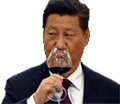FT
Opinion Chinese business & finance
It’s no longer glorious to get rich in China — it’s dangerous
Why no one wants to be the nation’s top tycoon any more
Last month, Colin Huang, founder of ecommerce powerhouse PDD, attracted the usual headlines when he rose to become China’s richest man. But shortly after, PDD surprised investors with a downbeat profit forecast. Its stock plummeted. Huang lost $14bn overnight, and ceded the top spot to Zhong Shanshan, founder of beverage giant Nongfu Spring. Within 24 hours, Nongfu Spring issued its own unexpectedly depressing outlook, and Zhong, too, soon slipped from first place on the rich lists.
On Chinese social media, chatter broke out about whether corporate leaders might be competitively devaluing their own stock prices to avoid the widening crackdown on excessive wealth, which is a centrepiece of leader Xi Jinping’s “common prosperity” campaign. It is not implausible to conclude, wrote one Wall Street broker, that “nobody wants to be the richest man in China” at a time when its government is turning more assertively socialist.
Whatever the true motive for these profit warnings, the way they were spun on Chinese social media reflects a real change in the national zeitgeist. When Deng Xiaoping became paramount leader in the late 1970s, he defanged the old Maoist hostility to wealth creation. To get rich would be “glorious” in his increasingly capitalist nation.
But there was a catch. It was glorious to get rich — just not too rich. China was generating far more wealth than other developing countries, yet its largest individual fortunes remained modest compared with those in much smaller economies, including Nigeria and Mexico. Even during the roaring boom of the 2000s, an unwritten cap seemed to remain: no single fortune would rise much higher than $10bn. China’s billionaire list was also unusual for the high rate of churn in its top ranks.
By the early 2010s, at least two tycoons had seen their net worth approach that decabillion-dollar barrier, only to land in jail on corruption charges instead. That is not to say the charges were baseless, only that the choice of targets did appear to reflect a lingering, levelling tendency among China’s leaders.
That instinct flowered anew under Xi. Coming to power in 2012, he launched a campaign against corruption that reached deep into the elite. The early targets were often public sector bigwigs — bureaucrats, Communist party princelings. With China’s economy slowing, the regime seemed reluctant to scare the one private-sector goose still laying golden eggs: big tech companies. Over the years, many Chinese would build fortunes bigger than $10bn. The first three to breach that threshold, and keep rising, were tech industry founders led by Jack Ma of Alibaba.
This quiet tolerance would turn in 2020, during the stimulus-driven market boom. China added nearly 240 billionaires — twice as many as the US — but late that same year Ma made a speech that helped bring this party to a halt. In a guarded but unmistakable critique, Ma questioned the direction of Communist party rule, warning that overregulation threatened to slow tech innovation, and that Chinese banks suffered from “pawnshop thinking”.
State retaliation was swift. Alibaba’s share price collapsed. Ma tumbled down the rich lists and dropped out of public view. Early the next year, Xi launched his common prosperity campaign and the crackdown spread to any company deemed out of step with its egalitarian values.
In this new era, it’s dangerous to get too rich. Stories abound of the state launching investigations against this business figure or that financier. The pressure is drying up venture capital funds, scaring the young away from lucrative professions such as investment banking. The number of millionaires leaving China has been rising and peaked last year at 15,000 — dwarfing the exodus from any other nation.
The private sector is in retreat. Since 2021, the stock market has been sliding, but state companies have grown their share of total market cap by more than a third to nearly 50 per cent. China now has the world’s only major stock market in which state-owned companies are valued on par with those in the private sector. Individual fortunes have shrunk dramatically over the past three years; the number of billionaires has fallen 35 per cent in China, even as it rose 12 per cent in the rest of the world.
China’s super-rich increasingly choose to lie low. Become the richest tycoon in the US and you might launch your own space programme. In India, you might throw gazillion-dollar weddings for your children. In China, you might look for a way to lose your new title — and the target on your back.


The quick answer is because the housing market was used for speculation and was causing real estate prices and rents to rise. China introduced "three red lines" policy to mitigate this and let the housing market crash and let the billionaire CEO Hui Ka Yan (and mostly foreign Investors) hold the bag